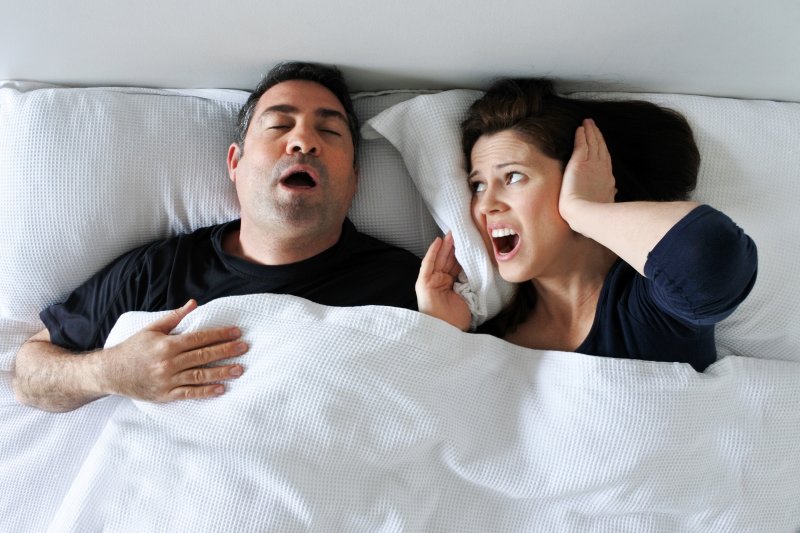
Do you think your snoring is nothing to be concerned about? Think waking up each day to experience chronic fatigue is normal? These falsehoods can keep you from getting the essential treatment you need to enjoy a better quality of life. To dispel these untruths and many more, it’s time to look at four sleep apnea myths and set the record straight once and for all.
Myth #1: If You Snore, You Must Have Sleep Apnea.
While loud snoring can be a symptom of obstructive sleep apnea (OSA), it doesn’t always mean that obstructed breathing occurs, and vice versa. If you snore but don’t seem to wake up feeling fatigued in the morning, you may not have anything to be concerned about.
It’s always best to have it checked to ensure there are no additional problems, though. If other symptoms begin to develop, such as moodiness, forgetfulness, or drowsy driving, you’re better off seeing a sleep dentist for a formal screening.
Myth #2: Only Overweight People Develop Sleep Apnea.
Individuals whose body measurement index (BMI) is within the normal range can still develop sleep apnea. Being overweight or obese can increase your chances of interrupted rest and inadequate breathing, but it is not something that only occurs in those who are carrying additional weight.
Sleep apnea can often be the result of excess fat around the neck. Depending on your genetics and bodily development, you may have a narrow airway, or the fat you do have accumulates around your neck. This can cause a blockage to form even among those who are within a healthy weight.
Myth #3: Alcohol Can Help You Rest Better.
You might enjoy a nightcap a few times each week, but it could be causing you to experience greater fatigue in the morning.
Alcohol, while it can cause you to experience sleepiness, does not allow for deep rest. Most individuals who drink alcohol regularly do not enter into the REM cycle, which is essential for the body to restore and renew its energy and mental capabilities. Any type of beer, wine, or liquor will also cause your muscles to relax, making it easier for a blocked airway to occur.
Myth #4: Sleep Apnea Only Occurs in Older Individuals.
Children, young adults, and those who are middle-aged can develop sleep apnea. It does not solely affect a specific age group, sex, or cultural demographic. Instead, it is the type of condition that can affect almost anyone. While certain behaviors and lifestyle choices can increase your risk (i.e., smoking, being overweight, etc.), it affects more than 25 million people each year, many of whom are under the age of 40.
Don’t discount your symptoms of interrupted sleep and inadequate breathing. Getting the help you need will ensure myths like these do not gain anymore traction but instead, they’ll eventually disappear altogether.
About the Author
Do you suffer from sleep apnea? Dr. Shelley Shults is a board-certified registered nurse, general dentist, family nurse practitioner, and dental sleep medicine practitioner who wants to help. Leading a team of professionals at Powell Dental Sleep Solutions, she will go over any concerns you might have about treatment as well as squash any myths that might keep you from getting the care you need. To learn more about the truth behind sleep apnea treatment, contact us at (614) 681-8593.
